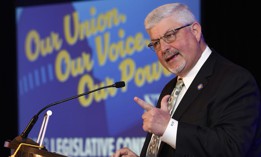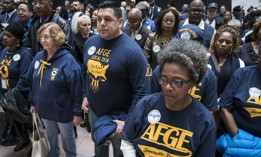Children have to build their own lives; we all know this. But parents want the best for them and don’t want them to commit errors that will make it harder to build those lives. How should children and their parents think about this conundrum?
College is often discussed as an investment in the future: You pay up front so you can benefit abundantly for the rest of your life. The financial benefits of a college education do indeed look great, on average. According to research by Michael Greenstone and Adam Looney at the Brookings Institution’s Hamilton Project, as of 2011 a college degree delivered an inflation-adjusted annual return of more than 15 percent per year. That’s a good deal. “The return to college is more than double the average return over the last 60 years experienced in the stock market,” they noted, “and more than five times the return to investments in corporate bonds ... gold ... long-term government bonds ... or housing.”
However, as investors like to say, past performance is no guarantee of future returns. Many analysts see wage growth stagnating for college graduates, with average starting salaries increasing just 1.4 percent from 2015 to 2018—a period when the economy was roaring.
From the April 2020 issue: The college president who simply won’t raise tuition
When you figure in the costs, the plot thickens even more. From 1989 to 2016, college tuition and fees went up by 98 percent (in inflation-adjusted terms), which is roughly 11 times more than the growth in real median household income. This has led to a lot of student-loan debt. According to the Federal Reserve, the average person with student loans in 2017 owed $32,731.
It may be worth the cost for kids who want to go into a field that requires a college degree. Some kids think they know what they want to do after college, but others don’t, so for them college is like buying an expensive insurance policy. Still, it’s worth noting that in 2019, just 66 percent of college graduates were in jobs requiring a college degree. What’s more, as of 2010, only 27 percent were in jobs related to their college major.
Finally, enrolling in college doesn’t always translate to a degree. While nearly 67 percent of high school graduates were enrolled in college in 2017, only 33.4 percent of Americans held a bachelor’s degree or higher in 2016. According to the National Student Clearinghouse database, 36 million Americans have received some postsecondary education but haven’t completed college and are no longer enrolled.
Read: Why is college in America so expensive?
Obviously, dropping out is not randomly distributed. According to the research, it is the least economically advantaged students, and those who don’t want to go to college in the first place (such as our son), who are among those most likely to leave midstream. As he reminded us, an unfinished degree costs time and money and is of little use in the labor market.
Perhaps you aren’t homo economicus, and don’t primarily use cost-benefit analysis to make decisions about your life or your child’s. But everyone wants to be happy, and wants their child to be happy as well. So let’s look at the happiness effects of college.
People who go to college are slightly likelier to report that they are happy about their lives than those who don’t go to college. In 2011, researchers found that 89 percent of high-school graduates who did not attend college said they were happy or very happy, compared with 94 percent of bachelor’s-degree holders.
This is correlation, of course, and it is not at all clear in the scholarly literature that education causes greater happiness. Some scholars have found that, when controlling for other factors in life such as income and religious faith, education by itself has no independent explanatory power over happiness. Some actually believe that education is negatively linked to happiness, and hypothesize that some college attendees trade ambition for life satisfaction. The bottom line is that the case is not closed here.
Graeme Wood: There’s no simple way to reopen universities
And there’s all that student debt to consider. According to a Gallup study from 2014, student debt is negatively correlated with financial and physical health and sense of purpose, and is associated with lower well-being on these dimensions for as long as 25 years after graduation. Again: That’s correlation, not causation. But it is easy to imagine how $393 per month (the average student-loan payment) could dampen one’s spirits even in service of a career you love, let alone one you don’t.
The evidence on the economic and happiness benefits of college is mixed. The only thing we can say with assurance is, “It depends.” On what? On the unique attributes of each person. Just as no one actually has 2.5 kids, averages don’t help much in figuring out the particulars of one person’s life. A child’s gifts, circumstances, and career ambitions all affect whether college is the right choice. Most of all, it depends on what they want to do. As a longtime academic, I can assure you that the No. 1 predictor of a failure to thrive in college is not wanting to be there in the first place.
That may be obvious to would-be students, but to many of their parents it isn’t. The college decision is often as much about the parents as it is about their kids. Tisha Duncan, a professor and college adviser, told Alia Wong for a piece in The Atlantic, “Instead of students announcing, ‘I got into college!,’ the parents are announcing, ‘We got into college!’” It’s easy to project our own desires onto our kids—to try to see our own potential come alive through them.
Read: Six-figure price tags are coming to colleges
But it’s a mistake. No one can build a life alone—we all need help—but in the end, our lives are our own. I remember making this case to my own parents at 19, when I told them I was going to drop out of college to go on tour as a classical musician. My wife, who grew up in poverty, made the same case to her parents when she dropped out of school to sing in a rock band. In both our cases, we completed our education later in life, but there was no guarantee at the time that we ever would. These were decisions that were staunchly opposed by our parents. Our son, wily devil that he is, reminded us of all this when he told us he didn’t want to go to college. He had us dead to rights.
So we blessed his decision.
The summer after our son graduated from high school, many people who knew us sensitively avoided asking us about our son’s future plans—assuming that we must be none too pleased that he wasn’t going to college.
But he did have plans: He found a job across the country on a wheat farm in central Idaho. This wasn’t a hobby or a whim. He became part of a community of honest, hardworking people. He worked from dawn until well past dark through his first harvest, driving a combine, fixing fences, and picking rocks out of the soil. In the winter he found a job apprenticing to an expert cabinetmaker, and started his own small business hauling firewood.
At this point, word about our son started getting around among people we knew who had children his age. Some of their sons and daughters were starting to struggle in college with grades, drinking, and loneliness. At gatherings, other fathers would sometimes sidle up to me and ask, “Just out of curiosity, how did your boy find that job out in Idaho?”
From the January/February 2018 issue: The world might be better off without college for everyone
After his second harvest, with money in the bank, our son joined the Marine Corps, a dream he had had for several years. He finished boot camp and is now at infantry school in North Carolina. He wakes up at 4 a.m., is tired all the time—and is happy. He is, as a translation of the second-century Saint Irenaeus puts it, “a man fully alive.”
I am a believer in the power of higher education to change lives and create opportunity, and am proud to teach at one of the greatest universities in the world. College is absolutely the right choice for many. But my son reminded me of a fundamental truth, which is that each of our lives is a start-up enterprise, and there is not just one path to success.
The college-for-all fever that has overtaken so much of our culture is a crass and classist mistake, because it ignores the gifts that people like my son have to develop and share. Maybe my son will still decide he wants to go to college someday. Maybe he won’t. But he is building his life with integrity and grit. And, frankly, that’s all a father could ever ask.













